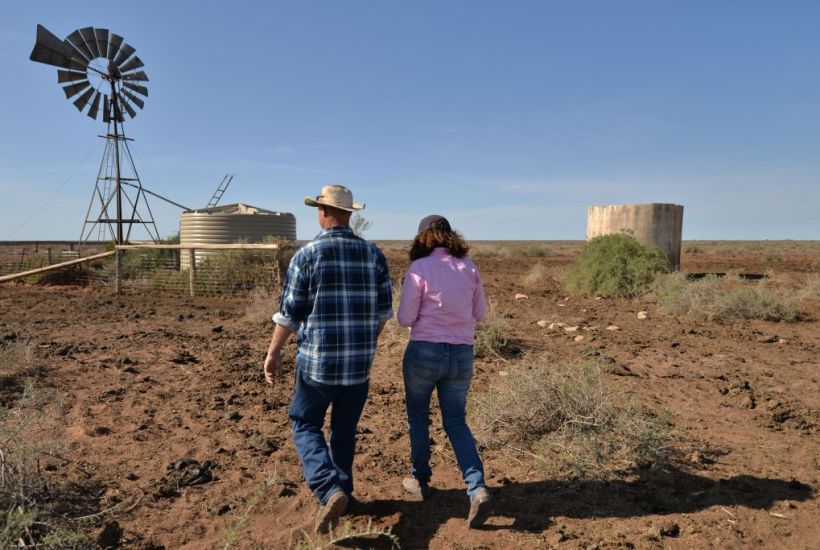The New South Wales government must grant an amnesty to all farmers who are being prosecuted under laws which no longer exist.
They are facing huge fines of up to half a million dollars for clearing vegetation on their own land and the threat of additional fines of up to $13,000 a day are also reportedly being directed toward farmers who refuse to answer questions from the Office of Environment and Heritage.
According to Webb & Boland solicitor Brendan Moylan, farmers are being targeted by the OEH for actions taken under now repealed legislation. Moylan has worked with many farmers who “had they waited for the law to change, their actions would have been legal under the new legislation.”
Moylan has told Ben Fordham’s listeners of the chilling realities faced by farmers who have gone years without an income due to the drought and now face bankrupting fines: “When you’re sitting in your clients shed putting the rifle away… trying to help him go inside away from the firearms cabinet, there’s something inherently wrong with the way that we’re approaching this issue.”
Native vegetation laws are a thorn in the side of farmers trying to run their business and make ends meet. Farmers must obtain a permit to clear trees and scrub on their own private land, and are required to set aside large amounts of their land to be locked away from future clearing. This red tape has decimated farm stock because many farmers cannot properly manage invasive native vegetation. The result is an undermining of productivity, made worse by drought conditions, resulting in higher food prices, lower land value, and a loss of income to farmers, their families and local communities.
Adding insult to injury are the associated costs of maintaining land to government specifications. Landowners bear the full cost of removing weeds and controlling feral animals, for example. Every minute spent on complying with red tape is a minute less to spend on the farm doing productive work.
Dictating what farmers can and cannot do with their own land is a clear violation of property rights. Farmers should be free to clear land for crops and grazing without having to jump through bureaucratic hurdles and give up sovereignty over their own property. Agriculture regulation has grown to such a large extent that it is questionable whether farmers truly still have private property. It is government ownership and control by stealth.
At a minimum, farmers should be compensated for the income forgone due to compliance with native vegetation laws. This would force the government to take the cost of their regulation more seriously instead of burdening those who can least afford it.
Recent outcry about the rate of land clearing from inner city activists completely overlooks the realities faced by people in the bush. The idea that activists living in their concrete inner suburbs care more about the land than multi-generational farmers who have poured their lives into the land is insulting. Farmers know best how to allocate the use of their property and are more than aware of the benefits of environmentally sustainable practices.
The reason for volatility to land clearing rates is farmers are acting under uncertain regulatory conditions. When the laws are relaxed, as they have recently been in NSW, farmers have an opportunity clean up their land that went by the weigh side under a stricter regime. On the other hand, if farmers are fearful of increased restriction, they will naturally want to exercise their property rights while they can.
The NSW government recognised that previous vegetation laws were unfair to farmers and too restrictive on land rights when they repealed the law. This was a very welcomed move. However, it is unjust for the government to be prosecuting farmers for violation of laws that have now been repealed and were recognised as unfair.
As farmers struggle to make ends meet in a time of drought and low product prices, the government needs to cut red tape across the board in the agriculture sector. This would allow farmers to continue to work the land producing the country’s food, clothes, and grain, all of which the Sydney-based bureaucrats who are prosecuting farmers rely on.
Kurt Wallace is a Research Fellow at the Institute of Public Affairs.
Got something to add? Join the discussion and comment below.
Got something to add? Join the discussion and comment below.
Get 10 issues for just $10
Subscribe to The Spectator Australia today for the next 10 magazine issues, plus full online access, for just $10.


























Comments
Don't miss out
Join the conversation with other Spectator Australia readers. Subscribe to leave a comment.
SUBSCRIBEAlready a subscriber? Log in